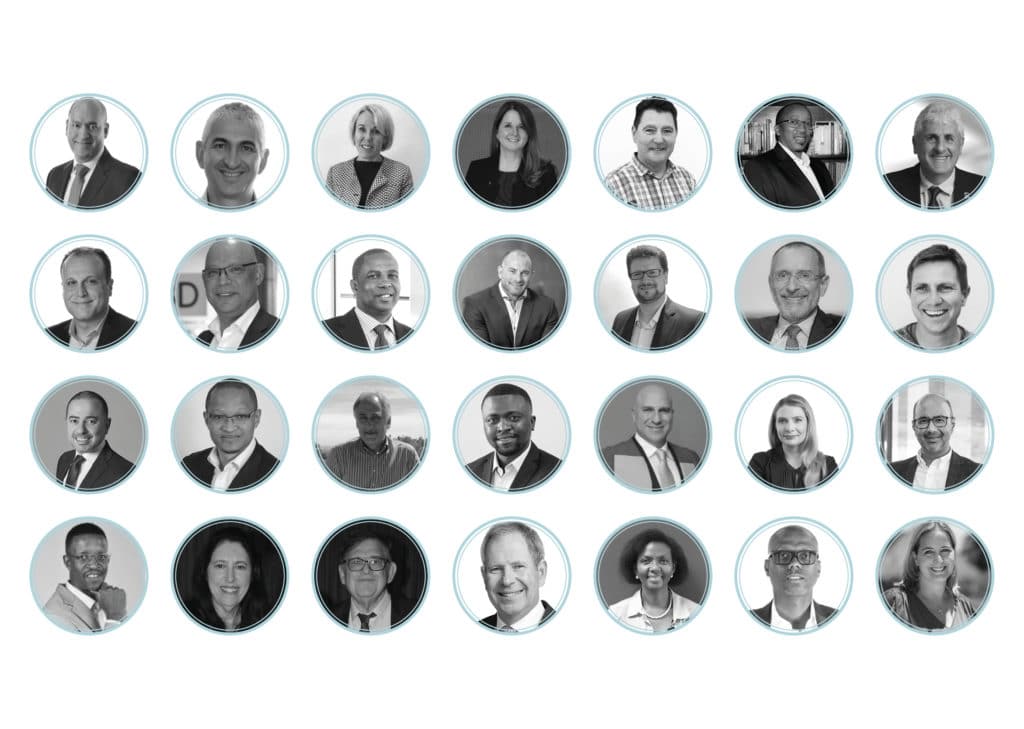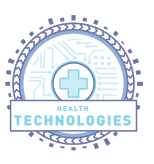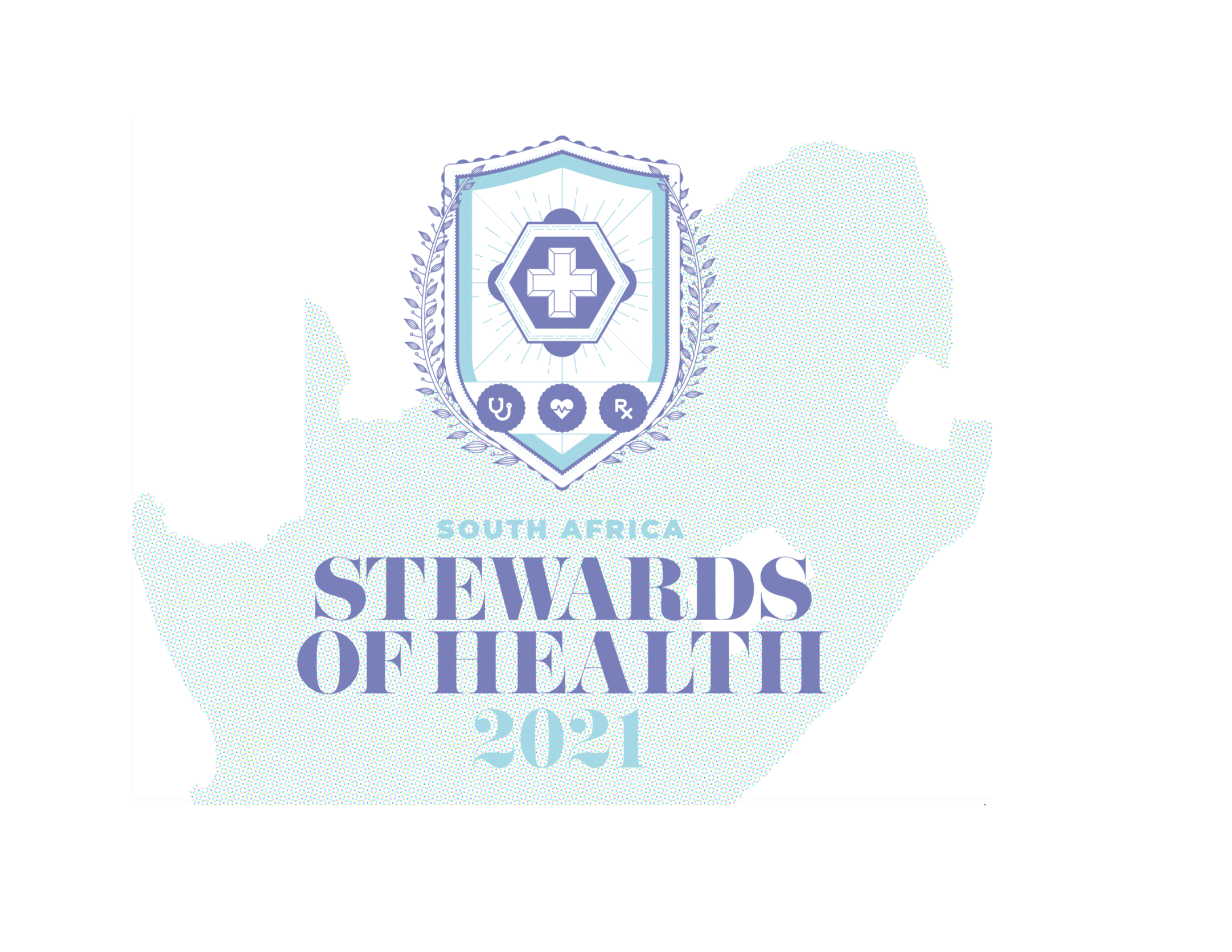“We have found a level of cooperation and collaboration with social partners that, in my experience, is unprecedented, certainly since 1994.” Highlights Martin Kingston, Steering committee chairperson of B4SA.
By Executive Forecast
B4SA is a cohesive grouping of private and public interests unlike anywhere else in the world. This unique cross-section—of labor, business, civil society, the Solidarity Fund and faith-based organizations—has been mobilized to support national healthcare efforts.

“You can’t compartmentalize business and government and society,” says Cas Coovadia, CEO of Business Unity South Africa. Coovadia should know: as the head of an organization whose ambition is to enable a “vibrant, diverse and globally competitive economy that harnesses the full economic and human potential,” he confronts the blunt reality that successful capital, governance, and the flourishing of citizens are fully interlinked—and that, in the grips of the global pandemic, they have never been more so. He joins a roster of South African Health Stewards who, in 2021 and beyond, will be pushing for not only a healthier but a fairer and more diverse world, one that transitions from prevention and diagnosis toward vaccines and innovation, embraces digitization, and adapts industry KPI’s to keep pace with unprecedented times that are shaping modern history even as we live through it.
The following article is web version for a full report conducted in South Africa. To download the full report click here. For access to the exclusive interviews click here. For participating in the upcoming South Africa Stewards of Health II, please contact us at [email protected].
Executive Forecast South Africa Stewards of Health 2021. Content by Executives for Executives was produced by White Ink House LLC. Executive Publisher: Ines Nandin Gray / Project Director: Santiago Nandin / Editorial: Arthur Thuot & Flora Mackinnon. Cover Design M.Celedonia.
Stronger Together
“COVID-19 is a national challenge requiring a collaborative national effort,”says Martin Kingston, of B4SA.
“The procurement of 90 million pieces of personal protective equipment when South Africa had almost nothing in stock,” Kingston offers as one example of B4SA’s impact. “Another was the UIF/Ters intervention for worker wage relief and the support for small businesses. Without this, South Africa’s social challenge would have been orders of magnitude greater. Other workstreams—risk assessment, civil society coordination, project management teams—contributed immeasurably.”
“ The more subtle but no less powerful message for our healthcare sector in South Africa is that it´s been the strongest and most effective example of public-private collaboration that I have seen in the last 30 years I have been involved in the Sector.” shares Jonathan Broomberg CEO Vitality Health International, and echoes “ the only positive thing of the pandemic is that it has brought together different actors in society, ones that wouldn’t normally work together, figuring out it is possible to work together and is something I am hugely proud of.”
Source: World Bank Global Economic Prospects. Note: 2020 GDP growth rates better than -4% are defined as moderate and worse than -4% as severe. For 2021, projected recovery rates below 4% are regarded as weak and above 4% as strong.
Master’s in Pandemic Administration

As the saying goes, in a crisis you must make the road by walking. But when the COVID-19 pandemic is compounded by civil unrest—recent riots and looting, stemming from longstanding frustrations over income inequality and a 32% unemployment rate—how should executives manage? What lessons have they learned, and what would they put on the curriculum for a Master’s in Pandemic Administration?
“Textbooks on COVID-19 are still to be written!” says Ivan Saltzman, CEO of Dis-Chem Pharmacies, a national chain that will open its 200th store in September 2021. “The situation is changing constantly, so basically it is about rolling up your sleeves and doing the best you can in a changing environment. Academic knowledge can’t teach how to deal with all that must be dealt with—South African business, the Department of Health, the director general of health, etc. We have to navigate it as it comes.”
“One of the important things was educating the public and creating awareness on mask wearing, hand-washing, sanitizing, social distancing, all the things that we know and concepts that needed to be reinforced,” says Lynette Frances Saltzman, the company’s Managing Director/Co-Founder. “Another was that this time it really was different. In the beauty sector, whenever there is a crisis, we refer to ‘the lipstick effect’—a woman buying lipstick when everything else is in turmoil. In this pandemic, however, no women were going out to buy lipstick because they had to hide behind a mask!” Faced with Dis-Chem’s online presence increasing by up to 400-500% at some stages of the pandemic, Saltzman says, “We had to shift and reduce inventories. There has been a move away from beauty products and toward immune boosters and health products. Beauty, makeup, and fragrances were also affected. Because people are not socializing, or going to the office, cosmetics aren’t being used as they were. It’s an important commercial adaptation for pharmacies around the world. It was a case of balancing the type and the quantity of stock needed.”
“First and foremost we must lead with empathy,” says Barbara Nel, Country President of AstraZeneca South Africa, when asked the biggest lessons from the pandemic so far. “We keep our focus on what we can control, and let go of things we can’t.” It’s an approach that led Nel’s internal leadership teams to pivot to digital and immediately start considering how patient behavior could change to access healthcare. “We also looked at opportunities to facilitate crucial knowledge sharing amongst Healthcare Professionals,” Nel adds, by delivering a series of “By Africa, For Africa” webcasts which enabled experts to share locally relevant content, within each therapeutic area, in response to the pandemic. “We provided the platform and the various partner healthcare societies provided the content,” Nel says. “We were one of the first movers on the African continent to embrace the easy and obvious digital solutions, going from face to face to remote engagements, and later a mix of the two to allow for HCP preference.”
“One of last year’s learnings,” says Ian Wakefield, General Manager of Becton Dickinson Africa, “was that while having a meeting with a room full of people is not easy, it is a situation we are all familiar with. But to speak to 300 people scattered all over the continent is a very different experience! It has been critical to learn new skills: we must be a reliable and credible institution with the capacity of resolving any situation that could arise, even simple ones. For example, finding swabs for COVID-19 at very short notice and sending them in the back of an ambulance to the Free States where there has been an outbreak.”
“Be nimble, flexible, and agile,” says Peter Mehlape, Managing Director of Medtronic Southern Africa. “We reset conditions for our employees to work from home while collaborating with our partners. We hoped that logistics companies and hospitals could offer the same level of services pre- COVID, which was quite a challenge. We collaborated with TNT, FedEx, and DHL for support with the logistics of moving our products around the country. In fact, we were able to overcome multiple obstacles to save lives with our work. For example, we chartered a plane to fly a cardiologist from Cape Town to Johannesburg for a critical operation during lockdown!”
“Ethics must be on the curriculum,” says Vikesh Ramsunder, CEO of Clicks Group, the country’s leading pharmacy group, “mainly because there are many ethical dilemmas with no obvious right or wrong answer. The second topic that must be covered is Corporate Strategy, because it is about learning how to make things grow and in a world such as ours we all know that no growth means more poverty.”
“Pandemial” Executives

2020 and 2021 has shaped a new generation of executives, who have lead through one of the most challenging times in modern history: The Pandemials. 25% of the executives interviewed where appointed during this period.
Peter Wharton-Hood is among a new generation of South African healthcare managers—but it almost didn’t happen. In January 2020, before becoming Group Chief Executive of Life Healthcare, he thought he had retired after a successful banking career. Then, by chance, he met Dr. Toby Cosgrove, and, at the age of 55, started in a completely new field. Or was it so new?
“The way COVID-19 has played out is that this clinical crisis is only the first piece of the problem,” Wharton-Hood says. “Once the clinical crisis was identified, the impact immediately became financial.” He explains that when he saw the clinical crisis merging with the financial crisis, the reality was that the pandemic had turned into a crisis of leadership more than anything else. “So, whilst the clinical components were identified,” Wharton-Hood says, “and were been treated by the clinicians and became accurately predictable in terms of the model, and the financial models have been understood and addressed by the bankers, the reality is we have industries, not just in healthcare, where the crises are all around leadership.” As a result, cash preservation and cost control became paramount.
“At the same time,” Wharton-Hood adds, “we had to spend more money on those clinical measures that protected both our nursing staff and frontline staff and our patients. The dichotomy inside the healthcare company became one of two contrasts: saving money because there’s a financial crisis, but investing money in PPE.”
“Just because we haven’t done it before doesn’t mean we can’t do it now,” says Hassan Sabbah, who has been with Abbvie for over 13 years but who was appointed from the UK to his role as General Manager for South Africa & Region Africa early 2020. It’s a fortuitous time, coinciding with finalizing the acquisition of Allergan, which strengthened a market-leading position in biologics for autoimmune diseases such as rheumatoid arthritis, and a newly launched oncology treatment for CLL, the most common leukemia in adults. Sabbah arrived to a mandate of closer partnerships with SAHPRA, and he will be leveraging his clinical research team based in the company’s Johannesburg offices—along with specialists across the country—to recruit local patients for upcoming trials in Crohn’s disease and ulcerative colitis.
“This speaks to our commitment to ensure diversity of population in our clinical trials and thus wider data points across different populations,” Sabbah says. “The reality is that it takes on average four to five years longer for the same product to be approved in South Africa than it does in the US, Europe, and Japan. To have access to these medicines, we need earlier regulatory approval, and to this end we continue to work with SAHPRA and their new reliance processes to help achieve earlier approvals. I want to be associated with the word resilience,” Sabbah adds. “We must continue to evolve and grow and take the right steps to break barriers and to be the disruptive agent to drive real change,” he adds, noting that disruptive change is possible only with the investment commitment to back it up: AbbVie spent over U$5 billion last year in R&D on treatments for diseases of unmet medical need.
Taryn Purdon was appointed General Manager and Director of Pierre Fabre South Africa in 2020, a year that saw the company’s global restructuring and gave her full responsibility for Medical Care, Dermo-Cosmetics, and Personal Care. “We’ve learned to face reality as a key success factor!” she says, stressing the importance of creativity in her outlook, moving from fixed budgets to a rolling forecast as the environment destabilized throughout 2020. “One of the biggest learnings working remotely while restructuring the company was that the well-being of the employees is critical.”
Inoculation Education
While government provides policy and administrative and political leadership, all sections of South African society are leveraging their brands, networks and infrastructure to drive vaccine education.
In July, Chairperson of the regulatory authority SAHPRA, Professor Helen Rees, used a call-in radio show as an opportunity to educate vaccine skeptics. “I think people are fearful because the vaccine was developed rapidly. People are asking the question—and it’s a natural question to ask—If you develop things rapidly, are you doing it properly? What the public needs to know is that we did not cut corners on looking at whether these vaccines are going to be safe or effective. We had all that data before we gave an emergency use permission.”
Ahmed Banderker agrees. The CEO of Afrocentric Group—the most diversified healthcare group on the Johannesburg Stock Exchange, with over 5000 employees and 3.9 million lives under management across its core businesses of private medical aid and chronic medical care, pharmaceuticals, and corporate wellness—wrote in a recent oped piece, “Before we vaccinate the body we need to vaccinate the mind.”
“Education plays a key role,” Banderker explains. “There are a number of people in the country and worldwide that have concerns and reservations about taking the vaccine because the clinical trials have been so short and expedited.” Normal drugs, Banderker elaborates, go through a process of 3, 4, or 5 years before they are registered and are considered safe, whereas all of the COVID-19 vaccines have been developed in under one year. “When I refer to vaccinating the mind,” Banderker elaborates, “I mean having confidence and faith in the fact that globally, every single company had the same focus in putting the best scientists on the job of developing a vaccine. If we cannot trust that process, then we will never move forward as a country or in fact as humanity.” Banderker puts the reality in perspective: “Today we no longer talk about polio or about measles, which are diseases which are completely managed,” he concludes.
Medtech to the Rescue
Not all heroes wear capes. MedTech companies have been rightly seen as saviors of sorts, whether introducing new diagnostic tools with the ability to manufacture to scale, or supporting vaccine trials with molecular test platforms.
And they have responded with historical swiftness—both to new patients caused by COVID-19 and to the related challenges for the company’s existing patients. But what about maintaining profitability?
“We managed our spending and revenue hits quite well, as we are not single-business dependent,” says Wakefield of Becton Dickinson, who points to the company’s response to its many patients with prostate cancer— an especially sensitive group, given the 40% reduction in visits to healthcare professionals by the non-COVID-19 population living with a chronic illness. “Over 2000 men were treated with BD’s brachytherapy technology, and this only happened because we came up with a unique solution to barriers such as no flights to or from the USA.” Other solutions included a public-private partnership with UCT’s Clinical Skills Centre and Groote Schuur hospital to create a “Safety in Health” simulation where medical students and other healthcare professionals could be trained on a range of medical skills and safety techniques. “When the pandemic hit South Africa, this ward became a COVID-19 ward because it had the facilities and best-practice techniques necessary for infection prevention and control, equivalent to those in a private sector hospital.”
Mehlape of Medtronic mentions similar initiatives spearheaded by his company, including Sunskill, an integrated clinical training laboratory. “Since 2016, Medtronic’s partnership with Stellenbosch University has prompted a transformational change to training and education of healthcare professionals across South Africa,” Mehlape says, adding that his company’s country-wide offices across six main cities allow its medical practitioners access to a wide portfolio of products and therapies, including theatres, ICUs, and teaching hospitals. “Like many industry players, COVID-19 has put to the test our operations, but at the same time opened up new horizons. We made a unique gesture by contributing the PB 560 ventilator on an open source. Sharing the ‘recipe’ to assemble ventilators was our way to help countries around the world overcome the pandemic.” It’s a surprising move in an industry that is sometimes criticized for opportunism, but Mehlape insists that he was keen to do the right thing—a humanitarian effort of ensuring that ventilators and other COVID-19-related products, like oxygen oximeters, intubation tubes, and cameras would be constantly available to meet the large global demand. “In some areas, manufacturing capacity was ramped up fivefold to keep up with the growing supply,” he concludes.
Shaping Modern History
If 1929 will be remembered for the Wall Street crash, and 1994 for the end of Apartheid, then 2021 will be remembered as the year that the world moved from diagnosis and prevention into a new paradigm of vaccines. South Africa is playing a central role: in July, Cape Town’s Biovac Institute announced that it will be the continent’s first manufacturer, which will reach 100 million doses of Pfizer-BioNTech vaccine in 2022 for distribution among 54 countries.
Discovery Health will be making sure that the vaccine rollout goes as smoothly as possible, thanks to its rich internal data sources complemented with national and international data. “Early in the pandemic,” says CEO Dr. Ryan Noach, “we developed measures and dashboards to closely track the COVID-19 evolution. The dashboard is now released daily, it has become visible and traveled all over South Africa in both healthcare and non-healthcare organizations.” The extensive dashboard measures information per province and per region, including new infections, hospital admissions, severe illness, and mortality. “We are constantly iterating and building on this, as we now enter the phase of measuring and managing vaccination,” Dr. Noach says. “We are closely tracking the non-COVID-related healthcare utilization, because Covid-19 has effectively squeezed out other parts of the healthcare system. Aside from the usual measures of productivity and health of our people, we have all these added complexities of tracking epidemic diseases which we do now on a day-to-day basis.”
“The better lesson learnt was the absolute necessity of closer collaboration across borders”, shares David Gibbons in reference to balancing resources allocated to each African country. “It has widened the need for a global view across the world and countries individually.” The objective is not to hoard test kits for a future wave when they could be needed in other countries.
Collaboration triple shot
The better lesson learnt from the pandemic, is the absolute necessity of closer collaboration, within all actors and across borders.
Part 1: Laying the Foundation
“It’s a critical step,” says Biovac CEO Dr. Morena Makhoana. “As a company that is based in Africa with limited skills and available capital, we have had to lay a strong foundation for the past 15 years with supplying our local market,” he adds, noting that over this timeframe, the country’s immunization schedule has evolved to such an extent that there are few differences compared to other advanced markets like the USA and Europe. “This foundation is now very solid,” Dr. Makhoana says, “and allows us to leverage and expand our capability beyond the borders of South Africa. We are now preparing to ensure that Biovac is a significant contributor to vaccine supply for global markets in the next 10 years.”
Part 2: Keeping the Momentum
South Africa’s health regulator approved the single-shot Janssen vaccine in April, and in just three months nearly a half-million frontline workers had received the jab, with up to 96.2% effectiveness against death from COVID-19. Francisco Plaza Muñoz, the local affiliate’s Managing Director, is proud not only of this most recent achievement, but of his company’s long-term commitment to public health in other diseases. “We used the same technology in developing the Ebola vaccine,” Muñoz says, “and candidates for Zita, and HIV which are now in clinical trials. South Africa is an integrated part of our drug trials. When we planned the clinical development of the COVID-19 vaccine, the country was one of the candidates to participate in the Phase 3 clinical trial which had over 60,000 volunteers all over the world.”
The biggest challenge, Muñoz adds, is to press forward on innovation without compromising safety. “Clinical research cannot have shortcuts,” he insists. “We learned during this process that collaboration is key to success. Developing Private-public partnerships, as well as engaging with different research institutions and companies, has allowed us to work simultaneously on different fronts.” Muñoz cites a specially expedited parallel process, as opposed to the usual “in sequence” process, which shortened timeframes dramatically. “While Phase 2 trials were still running, we started Phase 3 after successful interim results. Clinical trials aim not only to see how effective a vaccine is but also how long the immunogenicity is going to last. This research on clinical trials must continue.”
In late July, Steven Saad, CEO of Aspen, went on national television to make a big announcement. “It’s finally happening,” he says of the landmark joint-venture with Janssen. “We had to change API sources midway, but finally there are products that are made in Africa and being sold in Africa, so it’s a really proud moment for all of us—and a tribute to the team who worked particularly hard to get this over the line,” he adds, noting that around 1.5 million doses would be immediately available for domestic use, and that beginning in October, after a period of partial exports to Europe, 100% of Aspen’s production will be serving the African continent.
Part 3, Finishing Strong
“We have much to celebrate,” says B4SA’s Dr. Stavros Nicolaou, citing among other innovations, the Electronic Vaccination Data System, “which is the most tangible step to vaccinating particularly the elderly and vulnerable segments of the population.” Nicolaou explains that the country’s COVID-19 readiness always depended on two things. “One was securing sufficient vaccines—which we’ve now done, enough to cover 41 million people although we only need to vaccinate 40 million. The second thing, and this is the tricky part, is to ramp up capacity to vaccinate between 250,000 to 300,000 people every day for the foreseeable future, into February 2022.”
So far, things are looking up. In late August 2021, when vaccinations opened up for over- 18s, more than half a million people in that group registered. “We were delighted to see the enthusiasm of the youngest cohort,” Nicolaou says. “There were queues filled with young people at many vaccination sites. We know, however, that with each new age group, there is an initial rush of early adopters, and then demand tapers off significantly – a situation both B4SA and the NDoH are acutely aware of. The biggest risk that we now see is not vaccine support or capacity to vaccinate, but the sustained demand from all of South Africa’s adults.”
Let’s get Digital

Discovery’s tools are one example in a broader trend toward digitization that has only accelerated in the past 18 months—others include AstraZeneca’s New Normal Same Cancer Campaign, or the eSihle program offering prostate cancer patients home-based care and support, both facilitated by a low-touch patient journey that would have been impossible without digital tools.
Nel says, “We have partnered with BrandMed, a leading South African connected healthcare company, to sponsor fifteen BrandMed Syntro-P Health Centres of Excellence, offering patients access to a more proactive, patient-centric, integrated risk-reduction and treatment approach to chronic conditions.”
Ruth Field, Director Market Access, hopes that the country can look beyond with its digitalization efforts, keeping the momentum to the future. “COVID-19 information has been digitalized,” she says, “but the same must be done for all the health systems. In other countries, a patient in the primary healthcare system can be linked to a digital platform and to the protocols and guidelines, and there is a record in real-time showing the patient’s journey.” Field sees the implementation of such management in South Africa to accelerate diagnoses, allocate beds, and coordinate referral systems, allowing for new protocols to replace outdated ones. “With all this in place, we could improve the management of care tremendously,” Field says. “The best doctors, the best medicines, and the best systems are of no use if they don’t go hand in hand with good management of care.”
Digitalization is one of Bassem Bibi’s 3 D’s. “We see three key trends on the rise in healthcare: democratization, decentralization and digitalization,” says the Divisional Vice President, Middle East and Africa, Rapid Diagnostics for Abbott. “These trends are universal but occurring at varying speeds in regions around the world. In Africa, we offer a health data surveillance app called Sympheos that lets healthcare workers send data back from our rapid diagnostic tests to ministries of health so they can know if there is a COVID-19 or malaria outbreak.” And that’s on top of the more than 900 million COVID-19 tests that Abbott has already administered globally.
“We offer a wide range of tests,” Bibi says, “from high-throughput laboratory-based systems to point-of-care rapid tests, that allow us to expand access to testing across centralized and decentralized settings. Reference laboratories, regional and district hospitals and community clinics are all healthcare settings in which Abbott tests are being used to prevent and control spread of COVID-19.”
Banderker of Afrocentric Group highlights his company’s significant investments on digital tools and their implementation—including laptops, furniture, internet connectivity and security—“but if the investment was significant, so were the benefits,” he says. “The operational gains that we have had are completely sustainable and we consider there is still a lot we can do to further develop them.” One such way is through AI, enabling projects like “Hospital Benefit Management,” two years in the making, which launched in 2020 and can effectively and automatically authorize hospital admissions so there is no backlog and no delay.
Roche, too, has introduced digital tools, such as the app Floodlight for multiple sclerosis. “It combines medicine and technology for the advancement of what we can deliver to patients in rural settings” which have been disproportionately affected by the pandemic, says David Gibbons, Managing Director of Roche South Africa. “COVID-19 has broken down a lot of the silos,” Gibbons adds. “We didn’t use to talk, as we do today, to the distribution industry or the hospital groups. We need people who are open to this dialogue and to the idea of co-creating solutions with non-traditional partners.” He’s open to digital experts with cross-industry and cross-functional knowledge who can maintain an “innovative aura” and attract others who are fascinated by making a difference through innovation. “We have to find people who can figure out and develop ways of bringing digital aspects to the table,” Gibbons says, “and at the same speed we are commercializing!”
“Digitalization is crucial,” says Ayanda Swana, CEO at Siemens Healthineers South Africa. “The more digitized we are, the less human contact there will be, which is a step forward in the case of infectious diseases. Healthineers already identified with this concept in 2017 and it’s a promise we make to our customers. We must first understand how to digitalize healthcare, and second we must understand the concept of global health and the principles of public health and public administration. Only a year ago many presidents didn’t understand concepts which are of common use today, such as isolation or quarantine!”
“We have invested a lot into the growth drivers of our company, which are interventional imaging and digital solutions,” says Mia Louw, Country Manager for Guerbet South Africa. “Collaboration can be challenging but it does exist. We have collaborated with leading medtechs installing TT or MRIs as part of a tender. “On a global level, our three pillars are diagnostic imaging, interventional imaging and digital solutions & artificial intelligence. South Africa is firmly in the first pillar. We are establishing interventional imaging and then plan to move on to the third pillar.”
“Digital is king,” says Muñoz of Janssen, “but collaboration is King Kong! These are the two key factors to have. It doesn’t matter which platform you’re using—you need to have an agile team to find the most convenient solution fast. In Healthcare, we’ve been speaking about digital for years, but we’ve learned more in the last few months than in the past many years combined.”
“Digital is a friend,” concludes Zwelethu Bashman, Managing Director of MSD for South Africa and Sub-Saharan Africa. “For some time, we had gotten into a rut where everything had to be face to face, always traveling from country to country or moving from province to province for meetings.” Bashman describes the blessing in disguise of being forced to embrace digital. “Here we are 18 months later, doing 90% of our interactions online and business is still happening and companies are performing!” he says. “We should be grateful that, even if the systems aren’t perfect, it has been an important jolt in the right direction. There are wider-ranging positive impacts, too, in terms of environmental friendliness, from engaging health practitioners virtually. COVID-19 shocked us into a new way of doing things.”
Source: South Africa Business Pulse Survey; global comparison from Davies et al. 2021 based on Business Pulse Survey and Enterprise Surveys conducted in sub-Saharan Africa.
Note: Conditional Average, controlling for size, sector, and timing of the survey.
DISCLAIMER: Brand Voice is a paid program. Articles appearing in this section have been commercially supported.
